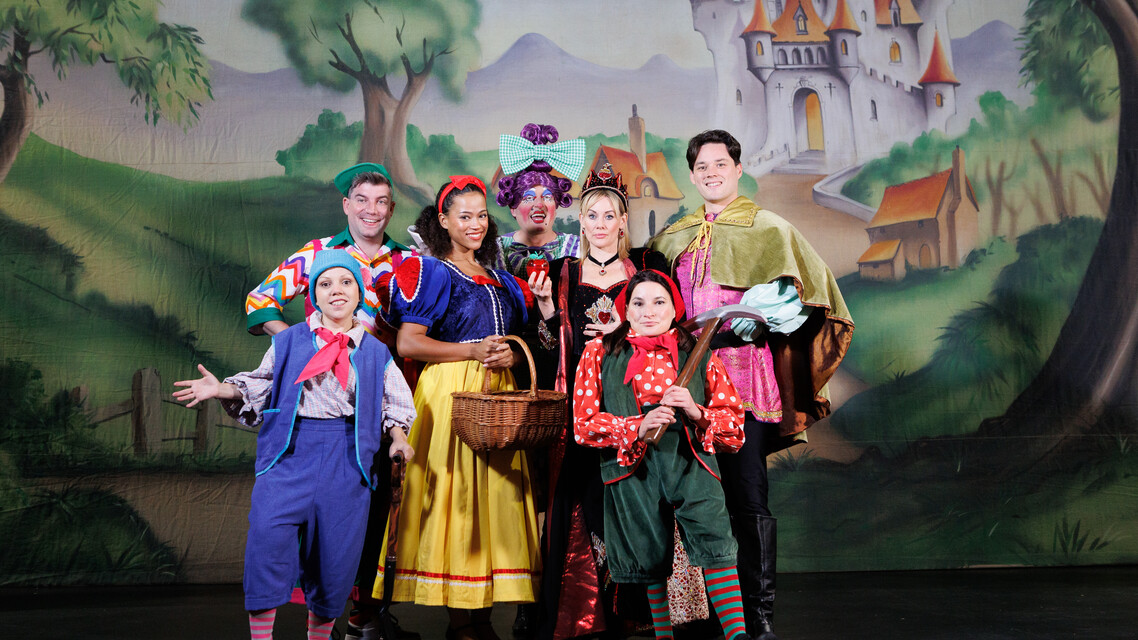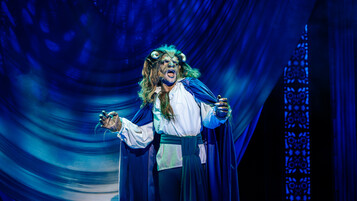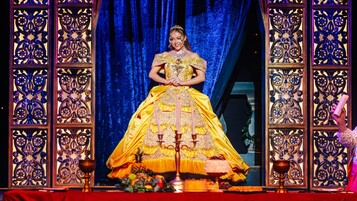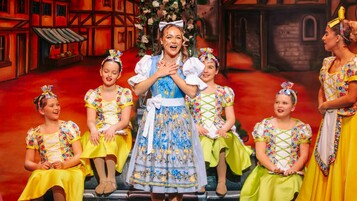News Story
Pantomimes have been entertaining adults and children for generations… but how much do you really know aboutpantomime? Enjoy our 10 super surprising panto facts!
1.Panto isn't British
While there's something undeniably British about today’s pantomimes, we have the Romans to thank for its origins.Pantomime was born out of a 16th-century style of street performance in Italy, known as commedia dell'arte, which featured sketches with masked characters. These comedy improvs were then reproduced in England as mimes or ‘Harlequinades’, which, along with the music hall and masque genres, formed the basis for the magical and vocal performances we love today.
2.It's not just Brits that love panto
Pantomimes aren't unique to British audiences - Australians, Canadians, New Zealanders and South Africans all enjoy pantomimes. In Jamaica they combine the traditional pantomime genre with local "Anansi" folklore. The last decade has seen the US increasingly embrace the concept of panto in a bid to emulate the successful British industry.
3.The evil character always enters from the left
It's traditional pantomime custom for the good character (shimmering fairy or fearless hero) to enter from stage right and the evil villain to appear from stage left. This stems from the concept that the left signifies Hell and all things wicked, and the right represents Heaven and all things good.
4.The messy scene in panto has a special name
The hilarious scene that involves some form of sticky substance, liquid or even custard pies is known as "The Slosh Scene". Seeing your favourite characters covered in a gooey mess is a well-loved tradition and a great bit of pantomime slapstick.
5.Pantomimes were originally silent
Panto is outlandish, loud, and bold with hilarious gags and cheeky innuendos – but did you know that early pantomimes were silent! Performances would typically consist of miming and dance. Spoken performances were only permitted in three London theatres until Parliament's Theatres Act lifted restrictions in 1843 and allowed spoken word performances, giving rise to today's wonderful use of wordplay, puns and audience participation.
6.There was a time when panto actors could only be male
While the dame character is the cornerstone of pantomimes, men originally took on the role out of necessity because women, at this time, weren't allowed on stage. In 1660 women were allowed to perform, however the practice of men dressing as women continued. At the time this included women dressing as men, a rather risqué move when women were not supposed to show their ankles.
7. The first panto dame
Actor Mr Simmons played the firstpantomime dame in a performance of Harlequin and the Mother Goose (also known as The Golden Egg) in 1806. The character was portrayed as a wicked old witch.
8.Panto is packed with superstition
Pantomime is full of superstitions. For instance, the last lines to be said in a panto's finale, which are usually rhyming, are never spoken in rehearsal for the risk of bad luck. The first time the words are uttered will be on opening night. Some actors have got so used to avoiding saying them in rehearsal they nearly forget to say them in the real performance!
9. Hours and hours (and hours!) of entertainment
Compared to today’s pantos, with a running time of 2-2.5 hours, some old pantos became notorious for how long they could go on for. Apparently in 1900 Dury Lane Theatre’s production of Sleeping Beauty and the Beast went on for an incredible five hours - imagine all the snacks and treats you’d need!
10.Widow Twankey was Named after…a tea!
And finally, Widow Twankey, the dame in Aladdin, is named after a cheap brand of Chinese tea from the Tuan Key region of China. The tea uses an old, ragged open-leaf tea to make the inferior quality green tea, possibly implying that Widow Twanky is also past her best.
Don’t miss your chance to inspire your children and give them an experience packed full of fun, laughter and amazing characters at Fairfield Halls this Christmas. Book your tickets to watch Snow White & the Seven Dwarfs at Fairfield Halls fromFriday 13 December 2024 – Sunday 5 January 2025, starring Kellie Shirley from EastEnders, Biff & Chip and Casualty as ‘The Wicked Queen’. Charlie Guest as ‘Muddles’ and the fabulous Jamie Steen as ‘Dame Dilly Donut’.
School and group rates available, please email schools@bhlive.org.uk




